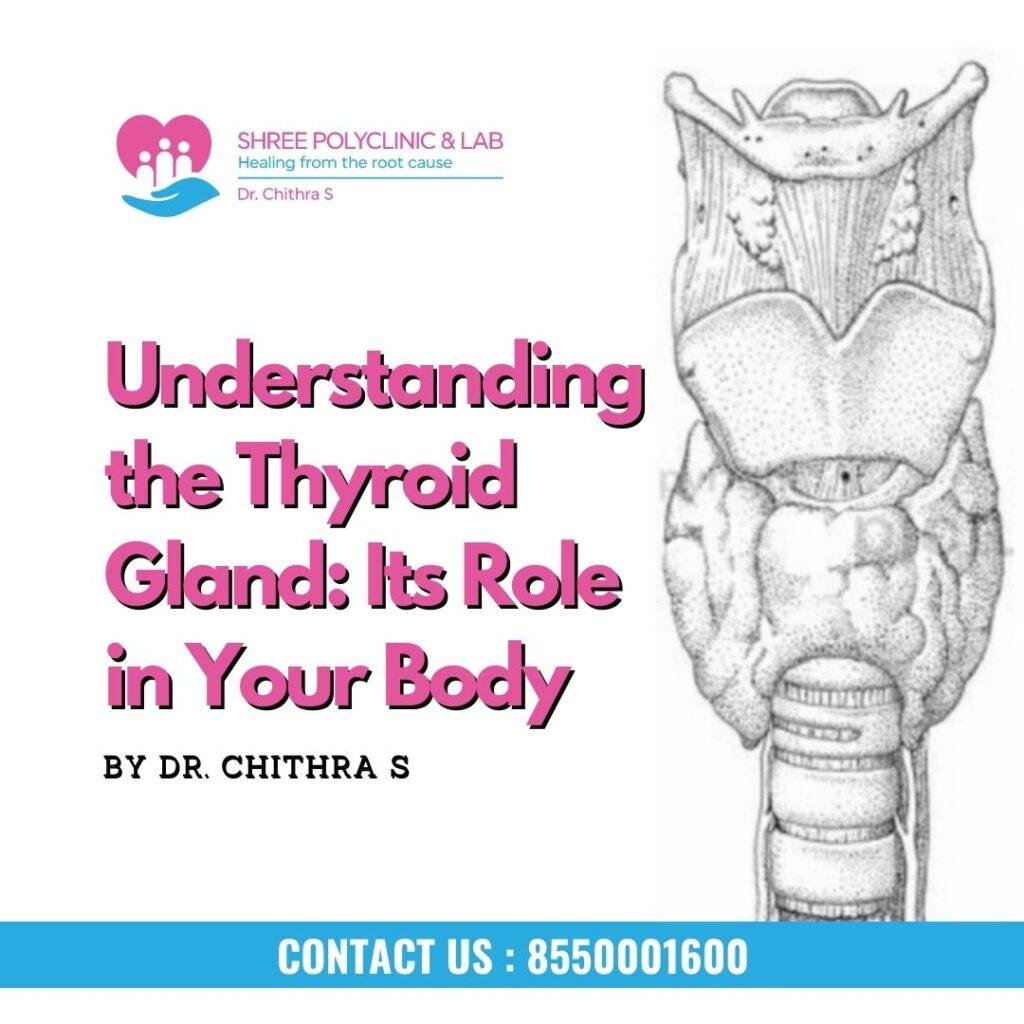The thyroid gland, though small in size, plays a monumental role in maintaining the overall health of your body. Shaped like a butterfly and located in the front of your neck, this gland is an integral part of the endocrine system. Its primary function is to produce hormones that regulate various essential processes in the body. Let’s delve deeper into understanding the thyroid gland, its functions, and why it’s vital for your health.
What Is the Thyroid Gland?
The thyroid gland is a small, butterfly-shaped organ situated at the base of the neck, just below the Adam’s apple. It consists of two lobes connected by a thin bridge of tissue called the isthmus. Despite its small size, the thyroid gland has a significant impact on almost every organ system in the body.
Functions of the Thyroid Gland
The thyroid gland produces and releases two primary hormones:
- Thyroxine (T4): This is the main hormone produced by the thyroid gland. It serves as a precursor to the more active triiodothyronine (T3).
- Triiodothyronine (T3): This hormone is more potent than T4 and directly influences the metabolism of cells.
These hormones regulate several critical functions, including:
- Metabolism: The thyroid hormones control how your body converts food into energy. This affects your weight, energy levels, and overall metabolic rate.
- Heart Health: They influence heart rate and help maintain a steady rhythm.
- Growth and Development: Particularly in children, thyroid hormones are crucial for brain development and physical growth.
- Body Temperature Regulation: They help maintain a stable body temperature.
- Mood and Cognitive Function: Thyroid hormones play a role in mental health and cognitive abilities.
Common Thyroid Disorders
When the thyroid gland doesn’t function properly, it can lead to several disorders, including:
- Hypothyroidism: This occurs when the thyroid gland produces insufficient hormones. Symptoms include fatigue, weight gain, depression, and cold sensitivity.
- Hyperthyroidism: This condition arises when the thyroid produces too much hormone. Symptoms include weight loss, rapid heartbeat, anxiety, and heat intolerance.
- Goiter: An enlarged thyroid gland, often visible as swelling in the neck, can result from iodine deficiency or other thyroid issues.
- Thyroid Nodules: These are lumps that may form within the thyroid gland. While most are benign, some can be cancerous.
- Thyroid Cancer: Though relatively rare, thyroid cancer can develop in some individuals and typically requires surgical and medical treatment.
Maintaining Thyroid Health
To keep your thyroid gland healthy:
- Consume Iodine-Rich Foods: Iodine is essential for thyroid hormone production. Foods like iodized salt, seafood, and dairy products can help.
- Regular Check-Ups: Routine thyroid function tests can detect any abnormalities early.
- Manage Stress: Chronic stress can negatively impact thyroid function. Practice stress-management techniques like meditation or yoga.
- Stay Active: Regular exercise supports overall endocrine health.
When to See a Doctor
If you experience symptoms like unexplained weight changes, persistent fatigue, or swelling in the neck, consult a healthcare professional. Early diagnosis and treatment of thyroid disorders can prevent complications and improve quality of life.
The thyroid gland is a small but mighty organ that affects nearly every aspect of your well-being. By understanding its role and taking proactive steps to maintain its health, you can ensure better overall health and vitality. If you have concerns about your thyroid health, don’t hesitate to reach out to a healthcare provider for guidance.

